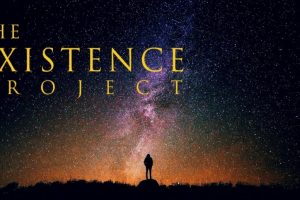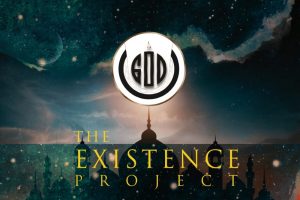
Farrukh Tahir, Canada
Some argue that everyone is spiritually inclined in one way or another. Even those who deny the existence of God are trying to connect with something greater than themselves.
Let me explain.
Even before birth, we feel the nuances of love in our mother’s womb.[1] Almost no one is a stranger to this assertive force of nature. An ocean of emotion, love’s tides ebb and flow not only in the hearts of humans, but animals, too.
The inextricable bond between a mother and her child is the first to exhibit this potent proclivity. In the preceding century, psychologists and psychotherapists have referred to the attachment theory, a concept coined by British psychologist John Bowlby, to describe this parent-child bond. In humans, this theory describes that a child’s survival or healthy cognitive development is dependent on the bonds it makes early on in life.[2] Hence, aside from being ingrained in our nature, love is a fundamental need. Many researchers like RF Baumeister and MR Leary suggest that love is among the essentials in Maslow’s hierarchy of needs, contrary to what was thought almost a century ago.[3]
And it´s not just the scientific community that testifies to the ineffably important role of love in the human condition.
Of course, religion has given central importance to love all along. For example, the Dalai Lama writes:
‘The need for love lies at the very foundation of human existence… Interdependence, of course, is a fundamental law of nature. Not only higher forms of life, but also many of the smallest insects are social beings who, without any religion, law, or education, survive by mutual cooperation based on an innate recognition of their interconnectedness.’[4]
Naturally, we continue to grow and attach ourselves to others in hopes of finding a sense of belonging. While this deeply human need exists in every human, the true depths of love cannot be unearthed just by realizing our dependence for it. Yes, love is in us all and we recognize it to be a basic need, but what is its role in the grand scheme of things?
In the bigger picture, every phenomenon in nature plays a role greater than itself – something more than meets the eye. Look at other basic needs like food and water. Food is not only a means of sustenance, but an integral link in the seemingly unending food chain as well. Water is not something that merely sustains life but enables it.[5] “We forget that the water cycle and the life cycle are one.”[6] Every driving force and element of nature has a story to tell. So, what is the story of love?

The Love Story of Love Itself
For many, love is the appraisal of beauty. It is our appreciation of the beautiful – intrinsic or extrinsic – that stirs the sleeping whisp of love within us. The inexplicable sensation of fluttering in our hearts, the chills that cascade down our spines, the serenity in something as simple as a cool breeze – activate the first stage of loving something within us. In many cases, beauty and love are literally joined at the heart.
What’s even more intriguing is the effect beauty has on us. There is evidence to support the fact that the human brain does not distinguish between art and non-art but has a general system of aesthetic appreciation. According to many experts, our brains register the beauty in brilliant art, captivating music, the serenity of nature, attractive persons, complicated concepts and patterns, etc., all in the same way. “Neuroaesthetics” had previously challenged this concept, only to find through neuroimaging that the brain has a general aesthetic system.[7] Yet other data challenges this view as well, demonstrating the deep complexities inherent in this budding branch of science.
In the pursuit of beauty – seeking it, forging it or becoming it – humans, against all species, remain uncontested. We are the only ones willing to go to such dangerous lengths for it. Whether it’s risking our lives to catch a glimpse of the world from atop a mountain, or the torrents of money spent to take in the perfect sunset at the beach, there is something intangibly whimsical about beauty. It is impossible to adequately sum up precisely how and why mesmerising music causes our dorsal hairs to stand on end, why we seem to lose ourselves in the strokes of a painting, why we pause and stare into the open air above a tranquil lake, or why we look up at the starry night sky and deep within ourselves, hoping to connect with the twinkling cosmos.

Scientists and researchers alike have been unable to conclusively pinpoint the reason why we appreciate and are attracted to beauty. Whether we look at human-based relationships or the awe-inspiring universe around us, beyond sexual and other carnal attractions necessary for survival, the appreciation of beauty provides little to no evolutionary benefit. Some even argue that the world didn´t need to be beautiful at all to function and support life.
We are all searching for something greater than ourselves, something we can´t quite touch, but which calls to us in different ways. Whether we see this universe as the bigger picture, focus on its origin, on nature itself, or believe in a God that caused it in the first place, we all experience this sensation, this pull. When we absorb the height of a mountain, we stare in awe because we realize its profundity. If an atheist wants to look at the universe and call it nothing more than an intricate system, they have the right. But they cannot deny the detailed benevolence of the universe toward the common goal of life and its survival against the innumerable forces that could destroy it. According to some, that is the function of beauty – to administer and support the progress of life – and our brain offers some compelling clues into this mystery.
One of the most prevalent regions in the brain that lights up at the spectacle of beauty is the medial orbitofrontal cortex, or the mOFC, which regulates cognitive processes like emotions, rational thinking and the expression of personality, among other functions.[8] This suggests that beauty is a visceral “emotion”. In other words, a gut feeling – similar to when the physical body reacts to something non-physical. This is also why we feel the way we do when we witness something beautiful. Interestingly, the sight of beauty also activates the caudate, an area of the brain involved in curiosity. When we see beauty in nature, listen to our favourite song, or even admire the visage of our beloved, we become curious and want to see more.

Beauty awakens within us an inherent curiosity of sorts. The allure of curiosity, just as with beauty, comes from a sense of incompleteness; a feeling that something is missing. That is why we observe beauty so intently: to discover something more. All the beauties in this vast universe are a vessel for the discovery of God. The ‘wonders of the world’ are named rightfully so, because they do make us wonder. Some might say that we feel a great sense of fulfillment witnessing beauty, and this is true. Despite the dancing of neurotransmitters at the sight of beauty, there is a sense of emptiness that remains. It isn’t ironic at all, then, that observing beauty involuntarily stimulates the motor cerebellum, the part of the brain that orchestrates movements in our hands.[9] Beauty literally has us reaching for something, without even realizing it. It is no wonder that we intrinsically long to explore what lies beyond this world.
According to Islam, everyone is naturally searching for God. We begin this search the moment we are born. We project the love and beauty we seek in our Creator on the objects that cloud our vision. The Promised Messiah and founder of the Ahmadiyya Muslim Community, Hazrat Mirza Ghulam Ahmad (as) offers a beautiful proposition on beauty:
“Of the natural conditions of man is his search after an Exalted Being towards Whom he has an inherent attraction. This is manifested by an infant from the moment of its birth. As soon as it is born, it displays a spiritual characteristic that it inclines towards its mother and is inspired by love of her. As its faculties are developed and its nature begins to display itself openly, this inherent quality is displayed more and more strongly. It finds no comfort anywhere except in the lap of its mother. If it is separated from her and finds itself at a distance from her, its life becomes bitter. Heaps of bounties fail to beguile it away from its mother in whom all its joy is concentrated. It feels no joy apart from her. What, then, is the nature of the attraction which an infant feels so strongly towards its mother?

It is the attraction which the True Creator has implanted in the nature of man. The same attraction comes into play whenever a person feels love for another. It is a reflection of the attraction that is inherent in man’s nature towards God, as if he is in search of something that he misses, the name of which he has forgotten and which he seeks to find in one thing or another which he takes up from time to time. A person’s love of wealth or offspring or wife or his soul being attracted towards a musical voice are all indications of his search for the True Beloved.”[10]
Love and beauty both assert the existence of God. They are a reminder that we must amount to His discovery, because “the best and most beautiful things in this world cannot be seen or even heard but must be felt with the heart.”[11] [12]
About the Author: Farrukh Tahir is an Imam of the Ahmadiyya Muslim Community in Canada, and member of the Existence Project Team for the Review of Religions.
[1] Carol Sorgen, Bonding with Baby Before Birth, (WebMD), https://www.webmd.com/baby/features/bonding-with-baby-before-birth#1
[2] Saul Mcleod, Bowlby’s Attachment Theory (Psychology Today 2017) https://www.simplypsychology.org/bowlby.html
[3] Baumeister, R.F., & Leary, M.R. (1995). The need to belong: Desire for interpersonal attachments as a fundamental human motivation. Psychological Bulletin, 117 , p. 497
[4] Tenzin Gyatso Dalai Lama, Our Need for Love (Heal Your Life 2010) https://www.healyourlife.com/our-need-for-love
[5] Westall, Frances & Brack, Andre. (2018). The Importance of Water for Life. Space Science Reviews. 214. 10.1007/s11214-018-0476-7. https://www.researchgate.net/publication/323301290_The_Importance_of_Water_for_Life
[6] Jacques Yves Cousteau
[7] Steven Brown, Xiaoqing Gao, The Neuroscience of Beauty (Scientific American 2011) https://www.scientificamerican.com/article/the-neuroscience-of-beauty/
[8] Jonah Lehrer, Why Does Beauty Exist? (Wired 2011) https://www.wired.com/2011/07/why-does-beauty-exist/
[9] Robert Lee Hotz, Searching for the Why of Buy (Los Angeles Times 2005) https://www.latimes.com/news/la-sci-brain27feb27-story.html
[10] Hazrat Mirza Ghulam Ahmad (as) (1905), The Philosophy of the Teachings of Islam (Islam International Publications ltd. 2017), p. 80
[11] Helen Keller (1905). “The Story of My Life”, p. 203
[12] https://rorenglish.wpengine.com/21150/true-love-and-the-perfect-life-partner/




Add Comment